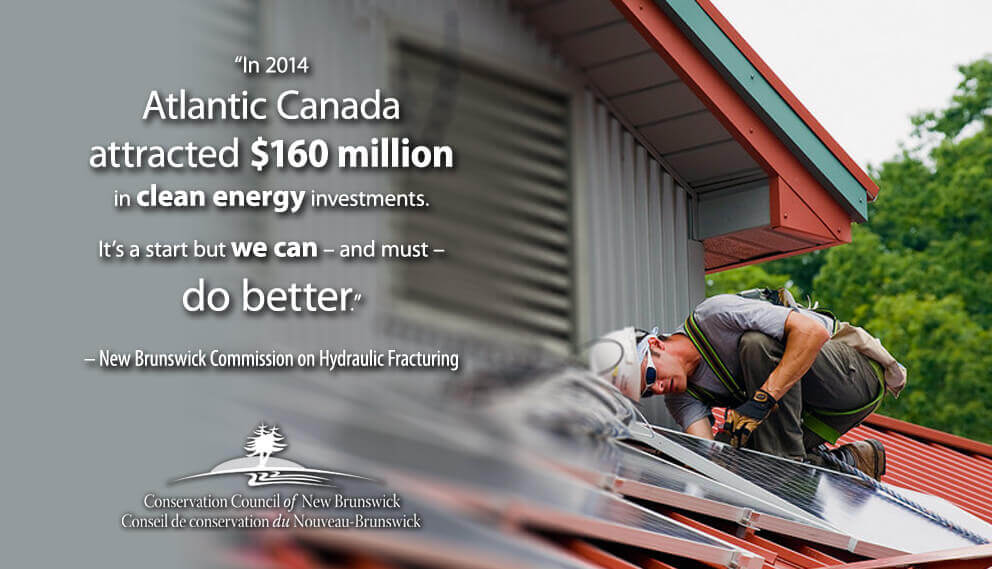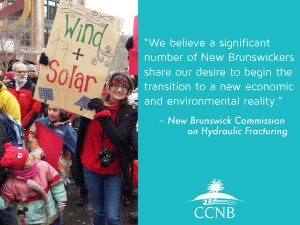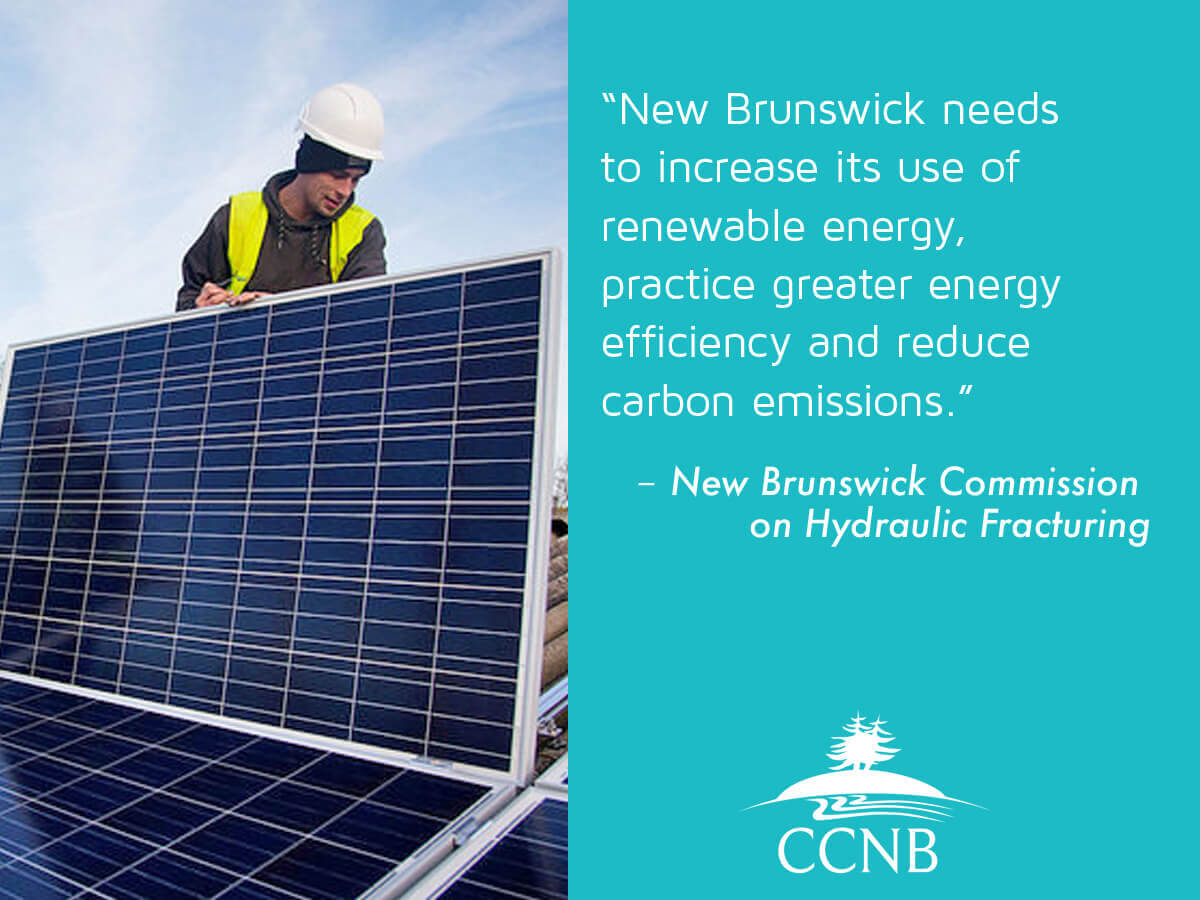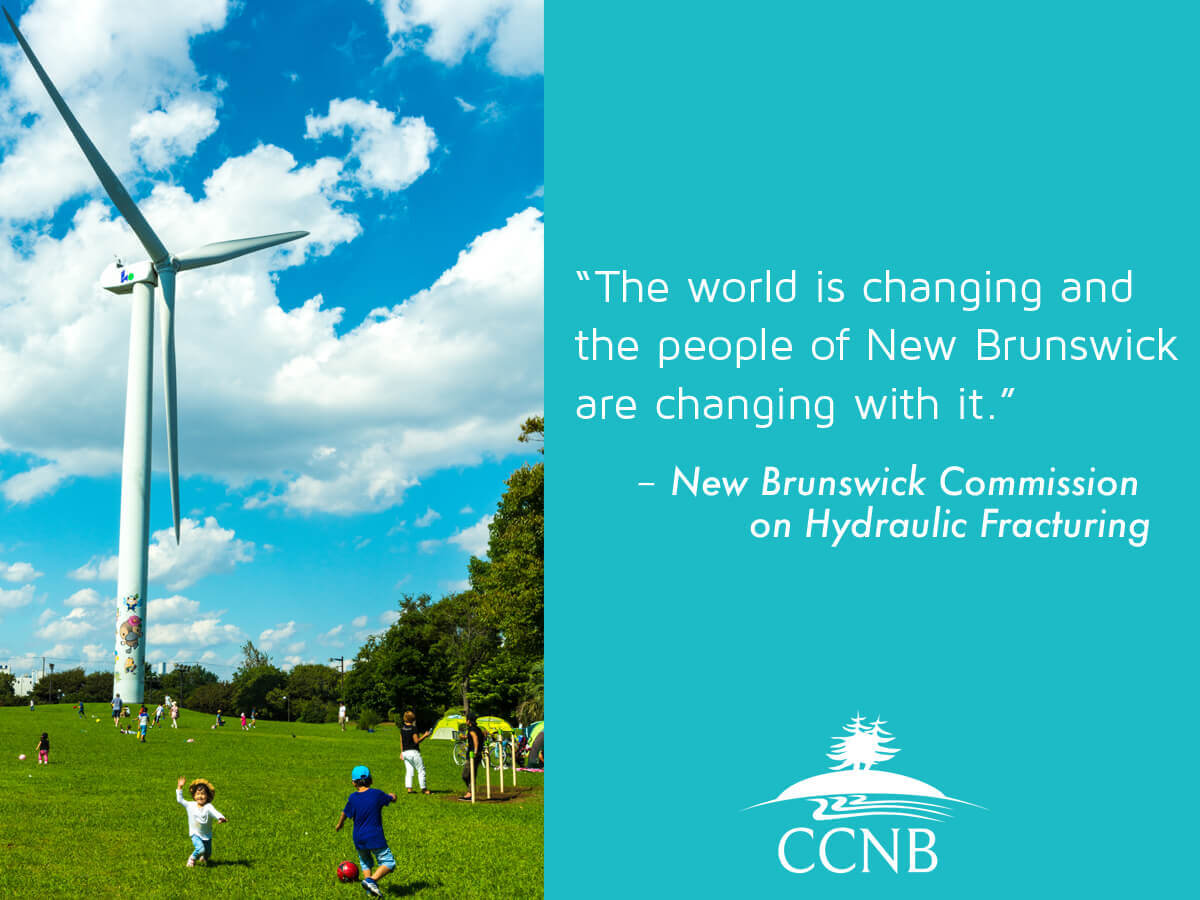Editor’s Note: This article appeared in the New Brunswick Telegraph-Journal and Woodstock Bugle-Observer on March 1, 2016

The report from the New Brunswick Commission on Hydraulic Fracturing gives New Brunswickers more evidence that our government made the smart policy decision by putting a moratorium in place and throws down the gauntlet for us to start the transition to a thriving low-carbon economy.
The Commissioners rightly point out that the world shifted with the signing of the first universal climate agreement and that the best opportunities for jobs and economic growth are now coming from clean energy and energy efficiency. Energy efficiency, especially, has long been recognized as a tool for creating jobs and keeping electricity affordable.
We agree with the Commission that, in order to fulfill our duty to the rest of Canada and the world on climate change, New Brunswick must transition away from the old-world economies of resource extraction and into a new era built around new technology and driven by clean energy.

Solar is one renewable technology that is gaining some serious ground. Just this week the American Solar Energy Industries Association (SEIA) announced that new solar power capacity outpaced the new generating capacity of natural gas in 2015 in the U.S.
Interestingly enough, the International Energy Association — not your average left-wing think tank — also took note of the rise of renewable technologies. Its October 2015 annual markets report said that renewable energy will represent the largest single source of electricity growth over the next five years, driven by falling costs and aggressive expansion in emerging economies. IEA Executive Director Fatih Birol said at the time that “renewables are poised to seize the crucial top spot in global power supply growth, but this is hardly time for complacency. Governments must remove the question marks over renewables if these technologies are to achieve their full potential, and put our energy system on a more secure, sustainable path.”
The Commission’s report should help N.B. turn the page on the tired fracking discussion and get the real work, building the components of a clean energy transition, underway.

The report also makes it clear that New Brunswick’s system for protecting the environment and regulating energy projects is prone to conflicts of interest and is at best years away from being ready to handle an industry like shale gas. The Commissioners say Nation-to-Nation relationships with First Nation communities are sorely lacking and that the public has low confidence in government’s regulations and ability to protect drinking water. They say they believe a significant number of New Brunswickers share the Commissioners’ desire to “begin the transition to a new economic and environmental reality.”
The moratorium, enacted in law in June 2015, was the smart public policy decision then and it will remain the right public policy well into the future. The Commissioners outline the crossroads our province — and the world at large — is facing, and it’s hard to imagine a future for new shale gas development in a world committed to protecting our families from climate change.
Our best bet for creating jobs right now in New Brunswick is through energy efficiency and clean power technology. That’s the road we need to take, and it’s the road that doesn’t put our drinking water or communities’ health at risk.


